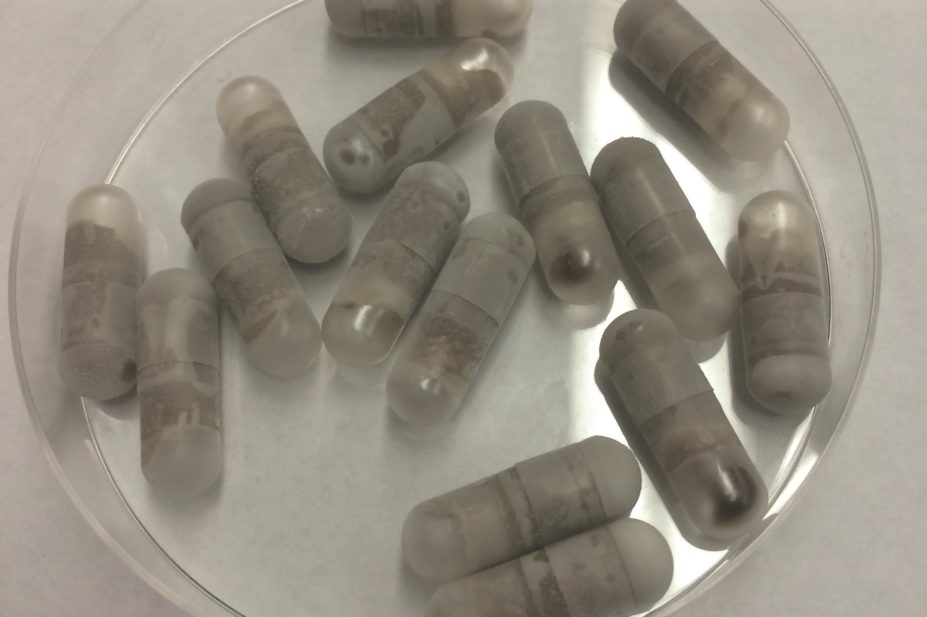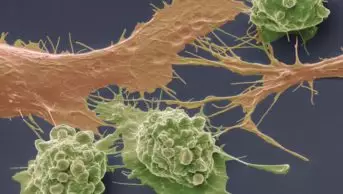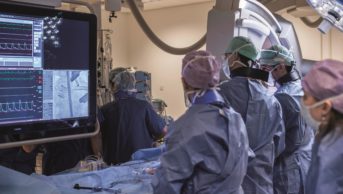
Hohmann Lab
Oral delivery of faecal microbiota transplant (FMT) therapy to eliminate Clostridium difficile infection is as successful as more invasive methods of the treatment, a study reported in JAMA
[1]
demonstrates. FMT was given in capsules, instead of being delivered through more traditional colonoscopies, nasogastric tubes and enemas.
“Invasive delivery systems for FMT all carry potential risks and varying degrees of discomfort for patients,” says Ilan Youngster, the study’s lead investigator and a fellow in paediatric infectious diseases at Massachusetts General Hospital (MGH) and at Boston Children’s Hospital. “The use of capsules simplifies the procedure immensely, and potentially makes the treatment available to more people.”
Having an easier delivery option for FMT comes at an opportune time. “Certain strains of C difficile, which currently causes about 250,000 hospital admissions and 14,000 deaths a year in the United States, have become highly resistant to treatment, which is typically antibiotics,” says Youngster. After patients with C difficile — which can cause severe diarrhoea, abdominal pain and inflammation of the colon — have gone through two rounds of antibiotic treatment with no success, they become good candidates for FMT.
Although FMT studies in animals and humans using fresh faecal material — usually delivered by colonoscopy — have had as much as a 90% success rate in restoring the normal balance of beneficial microbes, Youngster and his team wanted to simplify the process.
In 2012, the researchers demonstrated that FMT using frozen faecal matter delivered invasively was as effective as using fresh faecal matter. The following year they began a new study to investigate whether oral delivery of the frozen faecal material in capsules, designed to open after they reached the small intestines, would also prove effective.
The study’s 20 participants, ranging in age from 11 years to 84 years, each received 15 FMT capsules — containing filtered, diluted and frozen stool samples from healthy donors — each day over two consecutive days. After the treatment, 14 had complete symptom resolution and no recurrence over the following eight weeks. The remaining six patients received a second treatment, which eliminated symptoms for all but two participants. The overall success rate was 90%.
“This small investigation was designed to be a pilot study and provides preliminary data supporting the safety and effectiveness of this approach,” says Elizabeth Hohmann, of the MGH Infectious Diseases Division, senior author of the report and an associate professor of medicine at Harvard Medical School, who notes that larger studies are needed to determine the long-term safety and efficacy of the treatment. “We also hope to investigate the most effective microbial mixes for either oral or procedural administration.”
Youngster hopes that oral-capsule delivery of FMT will discourage patients with C difficile infections from creating their own FMT therapies, using faecal matter from family members or friends after researching the procedure online. “Although they believe they’re helping themselves by following protocols described over the Internet, these patients don’t realise the faecal matter they use for their concoctions may carry harmful bacteria, viruses and parasites,” he says.
Youngster emphasises that any FMT procedure should be performed under strict medical supervision with material from thoroughly screened donors.


